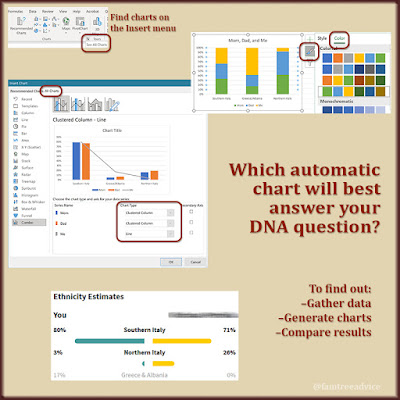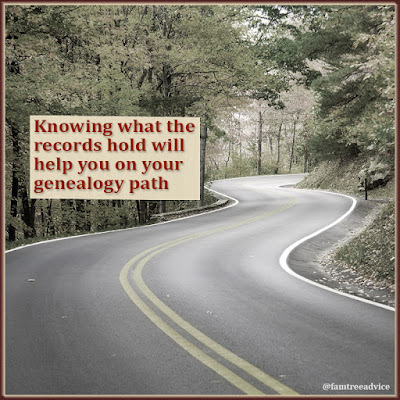When Suni Lee won her gold medal in gymnastics at the Tokyo 2020 Olympics, the press touted her as the first Asian American to do so. As the wife of an Asian American, I was curious to see which type of Asian she is.
Reading that Lee is Hmong was confusing. I'd heard of it before, but I wondered where the Hmong people come from. I read that Hmong is an ethnic group found in parts of China, Vietnam, Laos, Thailand, and Myanmar. That's a very large geographic region.
The difference between ethnicity and nationality should be important to genealogists. As shown by the Hmong people, an ethnic group can extend beyond national borders. Likewise, you can have more than one ethnic group within a nation.
 |
| Remember that your DNA is oblivious to national boundaries. |
Ethnicity is important when reviewing your DNA results. I'm mostly Southern Italian, which is a different ethnicity than Northern Italian. All my traceable roots come from a very small part of Southern Italy. That's why my "community", according to Ancestry DNA, is Campania and Molise—two neighboring regions in Italy.
I looked at the DNA results of my friend (who turned out to be my 6th cousin). Her core ethnicities are Central Ireland and Southern Italian. Her Central Ireland communities are specific to quite a small geographic footprint. Her Southern Italian community is the same as mine.
How do you self-identify? Getting into genealogy has made me identify as Italian more than ever. Yes, I'm American, but my cultural and genetic heritage is Italian. We're an Italian family that happens to live in America and speak English.
Growing up in suburban New York, my classmates were Italian, Irish, Polish, German. I didn't call them American because that was a given. We were all Americans, but Americans are always something else, too. We even called it a nationality (e.g., "What nationality are you?" "I'm Irish.").
Focus on your ethnicity, not your family's country of origin, and your DNA pie chart may make more sense. My pie chart also contains some Greece and Albania, and a bit of Northern Italy. It's clear to me that Greeks, Albanians, and Italians have a shared ethnic origin. People from these areas are very similar. I can imagine we can trace our ancient roots to the same place.
My cousin's adopted daughter has 13% "Germanic Europe" in her DNA profile. Ancestry DNA says this is mostly in Germany and Switzerland, but it reaches into several countries. If you have this ethnicity, but none of your ancestors came from Germany, it would be easy to think this was an error.
She also has 11% Middle East. My first DNA results showed 44% Middle Eastern, which was confusing. But my cousin's daughter's Middle East DNA comes from a specific part of Lebanon. Having Lebanese ethnicity is quite different than the much broader "Middle East". And it's easier to understand.
The best example I've seen of an ethnic group that spans nations is "European Jewish". This ethnicity reaches back to huge amounts of people who had to move from place to place. It's a perfect example of how ethnicity is not tied to nationality.
Ancestry DNA says, "We estimate your ethnicity by comparing your DNA to DNA samples from groups of people whose families have lived for a long time in one place." I can prove my ancestors stayed in their little corner of Italy for centuries. So did their neighbors. This makes us a strong, condensed ethnic group.
So, what do you think you are? I always thought I was Italian and DNA bears me out. Do you belong to an ethnic group that comes from many countries? Did large groups of your distant ancestors migrate from one region to another?
If you have ethnicities that span countries, you may need to adjust your thinking. There's nationality (especially during the Olympics). And then there's ethnicity. Perhaps your roots are deeper ethnically than nationally.
And speaking of DNA results:








